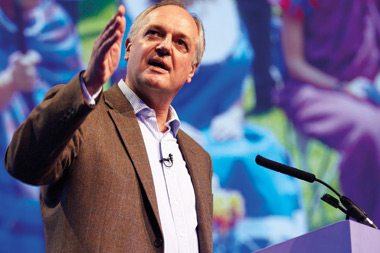The beauty of the 2030 Agenda for Sustainable Development is the interdependence and mutuality of its 17 Sustainable Development Goals. Progress against one goal generates progress for all.
Nowhere are these linkages more evident than in SDG 2 on Zero Hunger. Tackling SDG 2 outcomes on food, nutrition and land-use will help deliver progress across all 17 goals—from improving health to addressing gender equality to climate change.
Take poverty alleviation: studies have shown that for every 10 per cent increase in farm yields, there was a 7 per cent reduction in poverty in Africa, and a reduction of over 5 per cent in Asia. Increased yields also enhances farmer livelihoods, reduces inequalities and boosts education levels.
And research has shown that these yield increases need not cost the earth. Incorporating sustainable agricultural practises such as water-use efficiency and soil management can improve yields while simultaneously conserving critical environmental services. A win-win for people and the planet.
Yet, the reality remains that our current food and agriculture system is not fit for purpose. The disconnect between production and consumption has fuelled the double burden of persistent malnutrition and rising obesity. And commodity-driven deforestation accelerates climate change, which in turn affects agricultural production. Disrupted weather patterns, caused by climate change, threaten rural communities and the challenge of feeding growing populations on ever more degraded land is increasingly critical.
As the producers, manufacturers and retailers of most of the world’s food, business has a responsibility to help drive the food system transformation needed to meet SDG 2.
Many companies are already taking action—bringing digital innovation, research and development skills to bear on food and agricultural issues—and, in turn, future-proofing their own supply chains and opening up new market opportunities.
But as Jason Clay, from WWF US, warns: “No one company, government or organisation is big enough to move the sector by themselves”. We believe that a new independent coalition of public and private stakeholders that can combine leadership cut-through with technical depth is urgently needed.
That is why Unilever is proud to be a founding member of The New Food and Land-Use Coalition (FOLU) to help deliver against this ambitious task. Informally launched at the EAT Forum in Stockholm in June, FOLU brings together an alliance of progressive businesses, forward-thinking policy makers, foundations, investors, academics, international organisations and members of civil society to act as a flywheel for transformative change.
Guided by credible science-based targets, FOLU will develop pathways to tackle key environmental and social challenges which will unlock new models of sustainable nutrition that generate opportunities for growth while at the same time respecting planetary boundaries.
The targets will guide the scaling of specific business solutions such as the reduction of food waste, identifying alternative animal proteins and greater crop diversification. These solutions will be applied in country deep-dives (undertaking indepth analysis of the countries) to enable the right policy environment and public-private partnerships to ensure sustained action. Initial confirmed country deep dives include Columbia and Ethiopia.
The moral imperatives of delivering progress against Zero Hunger are clear. But now more than ever we also understand the enormous economic opportunities. As the Business Commission for Sustainable Development has shown, a global food and agriculture system in line with SDG 2 would create new economic value of more than US$2 trillion by 2030, while at the same time developing greater resilience to climate risk. The business case for collective action is both urgent and undeniable.
As we witnessed in the climate movement, the private sector joined forces to successfully raise ambitions and help to de-risk the political process. As a co-chair, my vision is for FOLU to do the same for food and land-use systems. We understand the value of partnership and collaboration and its importance in delivering systemic shifts. The SDGs have given us a framework for action. The time to deliver it is now.
Paul Polman is a SDG Advocate and the Chief Executive Officer of Unilever.

